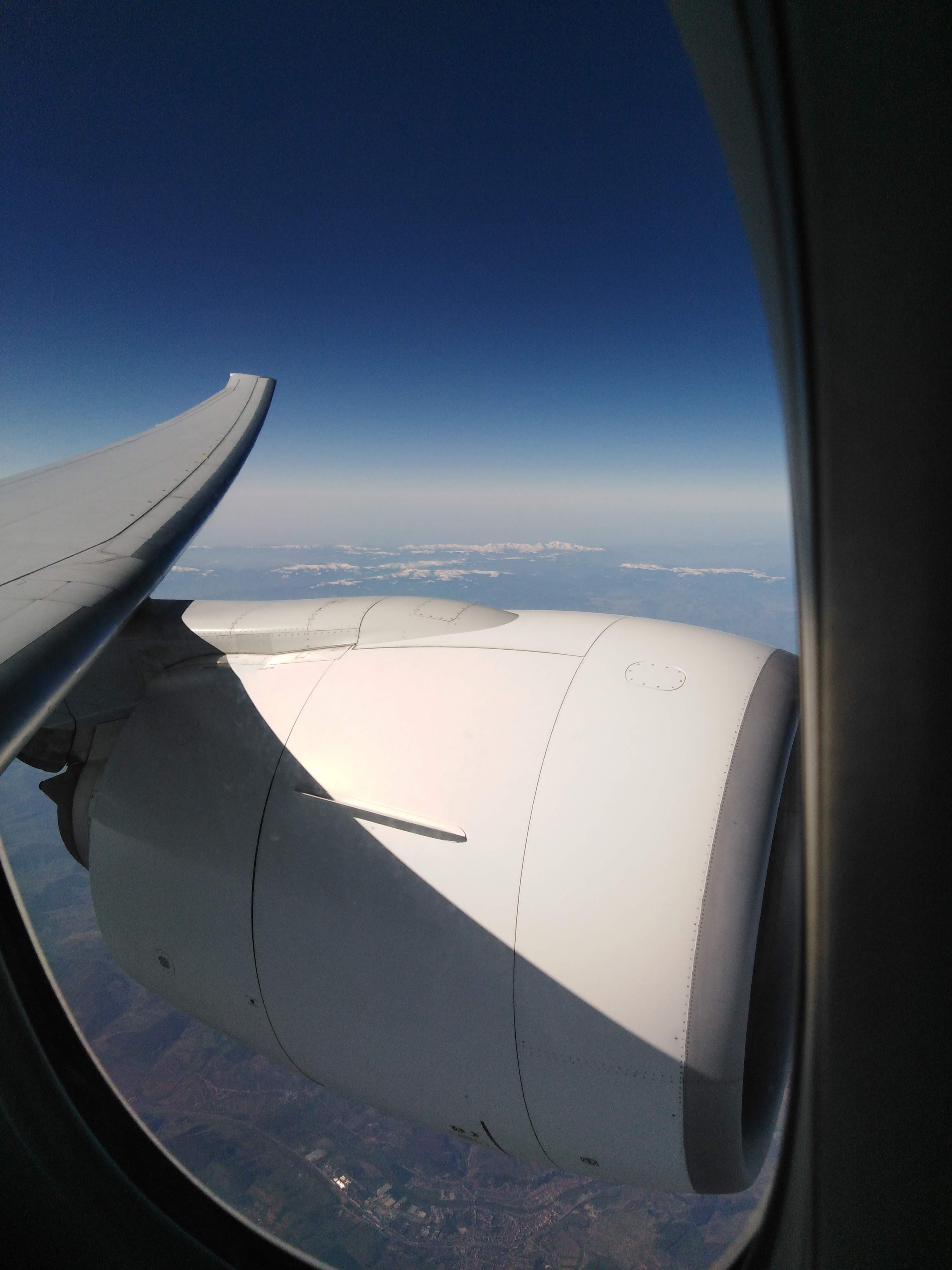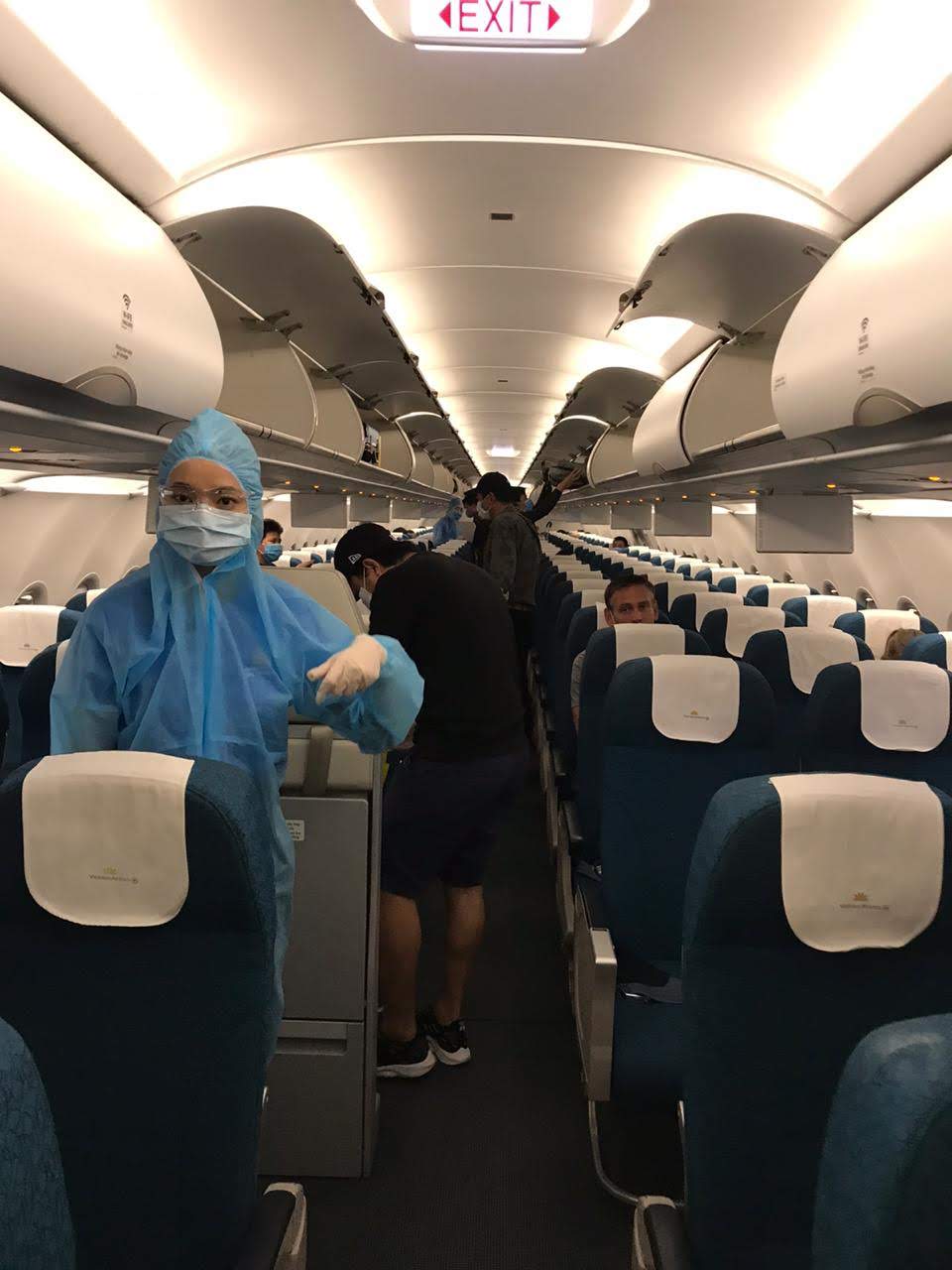
I was in Vietnam when I got a call from the Brazilian embassy. On the other side, a very kind woman said to me: “Helga, I'm calling you to confirm your place on the repatriation flight. We have few places on the waiting list and I would like to know if I can include your name ... ”.
I remain silent for a few minutes, take a deep breath, and answer without thinking too much ...
“Well, I can stay here for a while longer. I work online, so I have the resources to stay here, no problem. I prefer that someone else who doesn't have that opportunity and really needs to go back to Brazil could take this place ... ”.
And now is the woman that remains in silence for a bit, before she answers.
“Helga, even if you choose to stay, we strongly recommend that you leave Vietnam. So far we are not clear about the visa policy and, if you decide to stay, we recommend that you start looking for a flight to return to Brazil ”.
That answer was almost like a slap on the face telling something like "wake up, girl! the world is not the same now!". I asked her if she could return the call in a few minutes. She said yes and, as soon as I hung up, I opened Skyscanner and started looking for all the possibilities I had, in case I needed to leave Vietnam.
But in April 2020, the world was closed. At the beginning of this year, we still had a vague idea of what a pandemic would be, but borders have already started to become barriers.
The truth is, I had no option. Most countries had their borders closed and the future of my visa in Vietnam was really uncertain since I was in the middle of a lockdown and the immigration office was also closed. Staying in Vietnam, at that moment, seemed to me to be postponing a problem, which I didn't know what proportions could take. Suddenly, I drew all the worst scenarios in my head:
- Losing clients and not being able to maintain me anymore, since I was not allowed to work in Vietnam
- The values and cost of living/visa increase absurdly and even with clients I can't pay
- Not having a flight to return to Brazil or flights cost more than I could pay
- Someone in my family dies due to covid-19 and I am not in Brazil
That's how I took a flight to Hanoi, stayed a week in a hotel there, practically without leaving. Eating Vietnamese instant noodles and living with a community of Brazilians, we embarked, after 2 days of the forecast, back to Brazil.

It took 36 hours of flight and from Hanoi, I felt like I had jumped from one bubble to the next. Hotel rooms, covid-19 tests, seeing my parents, my brothers, my family without being able to hug them properly. It was all so crazy that I just decided to think about nothing and just live.
Almost seven months have passed since then. I lived in Brazil the most difficult part of a trip, which is to go back to the same place you left. And, as Nelson Mandela would say, “there is nothing like returning to a place that is the same, to find out how much we have changed”.
In these seven months, however, the question I asked myself the most was: did the pandemic put an end to digital nomadism? Will it be possible to travel and live from anywhere in the “new normal”?
Well, the truth is that I have no answers, but I understand that in the face of uncertainties, there are countless possibilities. And, therefore, I believe that the pandemic is not an end, but perhaps a new beginning for anyone who wants to live working online from anywhere.
Below I share some ideas, which may show new paths in the midst of so much chaos.
Digital nomads drive the economy
I lived for a year in Europe and then another two years in Asia, more precisely in Southeast Asia. While in Europe I found a large community of expatriates and remote workers confused by the idea of living from anywhere, in Asia, there are plenty of digital nomads in search of a community, or at least, more people who want to embrace this style of life.
When I was in Chiang Mai, in northern Thailand, I was able to meet countless people who live and work from anywhere in countless ways. Asia offers security, a very low cost of living, a tropical climate, and good quality of life. It is also easy to get long-term visas, which makes life easier for those who work and travel. It is no wonder that so many nomads spend time there!
And, more than experiencing experiences and meeting incredible people, I understood that nomadism is also an economic issue and that moves money. For both sides.
In Chiang Mai, digital nomads have pushed the economy a lot. Today, in the fourth largest city in northern Thailand, there is no shortage of good accommodations, high-quality cafes, and wi-fi for less than half of what many cities in the world do. This community certainly opened the eyes and the smile always willing of the Thais, when showing them that there were practically harmless tourists, who were not in the mood to ride their elephants, but to plant a laptop in one of their cafes.
With the pandemic, tourism was undoubtedly one of the sectors most affected. And in the absence of tourists, digital nomads have become perhaps the only way to move the economy of countries that live on it.
Recently, Croatia , Georgia , Anguilla, and Barbados were the first to launch applications for long-term visas for digital nomads. Thailand is also following the trend and has already done the same. In addition to these countries, Estonia was the pioneer in creating the first visa for digital nomads.
Health care can be cheapest in other countries
With the pandemic, health has become a priority in the world. However, in some countries, it is very expensive. Especially if you don't have access to a corporate plan, for example.
Today there are travel insurance and health plans focused on nomads. The Safety Wings has both the travel insurance option, which covers accidents and health problems, as a health plan that can be used for treatments. The monthly fee is in dollars, but still, a health plan outside Brazil costs less than many individual plans here.
Remote work is a reality (for almost everyone now!)
The pandemic, in a way, forced the development of remote work in many companies. If before there were doubts about the performance and productivity in the home office, today there is no other option. And as more and more people can work from home, why not also work from a cafe, coworking or the beach?
I believe that remote work is a path of no return and, once consolidated, the next step, that is, that of transferring the office to different places, will not take long.
I think the world will not be the same for a long time. This means that opening Skyscanner, buying a ticket, and installing anywhere in the world will have its restrictions. On the other hand, I see in digital nomadism a little solution, for problems that were not new.
Is that you? Do you believe that the pandemic put an end to digital nomadism? Share your experience or opinion in the comments! I'll like to know!
Very interesting thoughts here. While it´s very difficult to travel anywhere these days, I believe that the "work from home" model that so many people around the world have been adopting lately might be a presage of an unprecedented boom in digital nomadism once the actual traveling is possible again. Many people never even realized they could work from anywhere. Let´s see wat happens :)
@tipu curate 2
Upvoted 👌 (Mana: 0/20) Liquid rewards.
For sure! I also believe the seed was planted! Let's wait for more!
Hey, if you feel inspired and also want to write, why don't u give a contribution to this community by saying what do u think about that? I mean, being a digital nomad now and then... If you want, fell free to to it! :)
Thanks for the invitation, I might give it a try :)
yaaayyyyy!!! canot wait for it! \0/